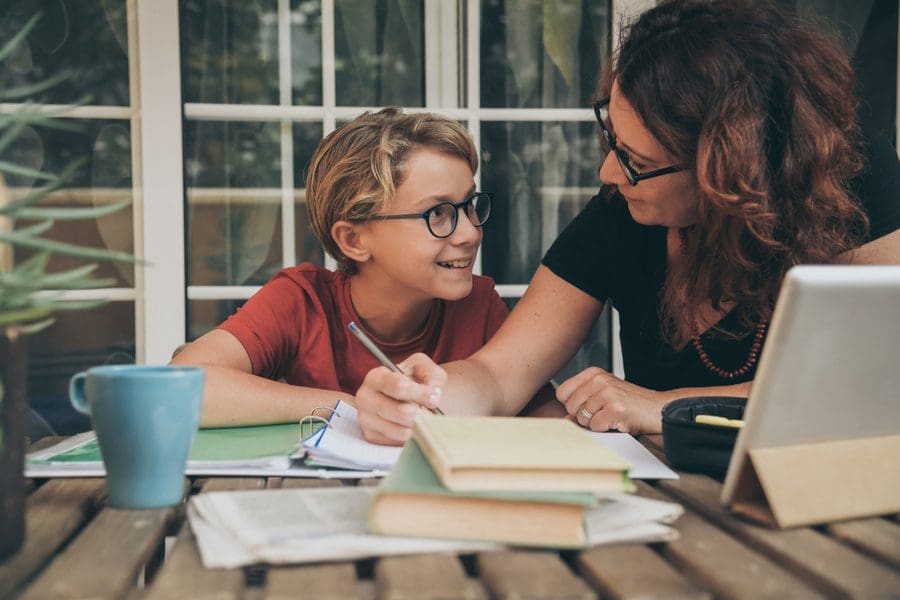Thousands of parents were thrust into the challenging role of home-school teachers as the coronavirus forced schools to be closed, and for many, feeling pressure to help their children stay on track and make progress can be overwhelming. It’s important to remember that temporary homeschooling isn’t meant to completely replace school. Parents might not be able to offer the same exact educational structure, and kids likely won’t be as focused as they would be in the classroom. But, there are things you can do to help your child feel secure while doing the best you can during this time.
It’s OK to keep it real
It’s not realistic for most parents to throw themselves into intense homeschooling overnight. Although some parents may have resources already set up, some will struggle. Some Moms and Dads will wrestle with the unfamiliar role of instructor and many are balancing working at home with teaching. Try not to be hard on yourself and remember that you don’t have to imitate what others are doing. You don’t have to be perfect. Just do your best.
Recognize that kids have individual needs
Whether at home or at school, children have different needs. Take time to help each child out separately.
Create a schedule
Set times for each subject and post the schedule where everyone in the family can see when home-school is in session. Because most students rely on a schedule at school, creating a schedule at home can make their new learning environment seem familiar and ease them into studying at home.
Build in choices
Some school districts have set up online lessons to complete and curriculums that children should review with their parents. Many parents will be working with assignments sent home from schools. Once you’ve scheduled the required studies, you’re free to ask your kids what they’d like to learn. Then you can get creative and have fun.
Baking and basic carpentry can teach math. Gardening can teach botany. Art plays an important role in education and you can find materials for art projects around the house. Recycle old jars, plastic bottles and cardboard tubes from toilet paper rolls. Check out apps to learn about space and then take a field trip outside to study the night sky.
Lean on reading
Reading is an essential skill for students of every age. Although parents may worry about making sure children have books at the right reading level, it’s important to let them choose books they find interesting. A child who is engaged is eager to read, and enthusiasm goes a long way in maintaining and building their reading skills.
Get creative in finding books. Small children love having Mom and Dad read books aloud to them but finding the time can be difficult. Turn to audiobooks to fill the gap. Take advantage of the storytelling skills of actors who are reading to children online. E-books are available through electronic downloads from many public libraries.
Make space for downtime and recess
Allow time for recess or outdoor time. Whether it’s structured or unstructured, either is ideal if the kids can get outside and run off steam. At the same time, give the kids downtime so that they can disconnect and learn how to be bored (and maybe get creative)!
Balance screen time
Your child may need their cell phone now more than usual for essential social connections in a time when physical distance is critical. Talk with your child about setting reasonable boundaries around using the phone.
Children will be on screens a lot while they’re at home. Give them physical cues to help them separate school from leisure. Let them sit at a desk to use a computer for schoolwork and then encourage them to move to the couch to watch TV. Take comfort in knowing that TV isn’t just a time to zone out. Family movie nights can give you a chance to connect with each other.






